Professor Molly Guptill Manning Answers the NYLS 10
Associate Professor Molly Guptill Manning is a researcher and author focusing on freedom of expression, and as a member of the New York Law School faculty, she teaches a number of courses to our student body. Her 2023 book, The War of Words: How America’s GI Journalists Battled Censorship and Propaganda to Help Win World War II, received a tidal wave of praise in a series of rave reviews in major publications. The deeply human, sometimes funny volume details American World War II troops’ fight against censorship through the expansive troop newspaper program. Professor Manning also curated the exhibit “The Best-Read Army in the World,” which is on display at the Grolier Club from September through December 2023.
Here, Professor Manning answers the NYLS 10 — 10 questions about her work, her interests, her worries, and the things she looks forward to.
1. What is the focus of your work?
My focus area surrounds First Amendment issues, including freedom of expression and access to the courts. For freedom of expression, I am especially interested in book bans. Historically, during the 1930s and 1940s, books were banned around the world, and the limitations on access to books helped breed intolerance, prejudice, and hate. A stigma tends to attach to banned material — by its very nature, a ban suggests that the author or viewpoint portrayed is somehow dangerous to other people. Unfortunately, this isn’t something we’ve left behind to history.
2. How has your scholarship and interests changed over your career?
In addition to freedom of expression, I’m also passionate about prisoner’s rights, and I’ve written several law review articles that focus on the constitutionality of limitations placed on prisoners’ access to the courts. While my scholarship and research interests for the past decade have centered on the freedom to read and prisoners’ civil rights, I am always open to learning more about all areas of law. By reading and researching, I’m constantly exposed to more ideas, and if I uncover a new topic that excites me, I will likely pursue writing about it.
3. How do people respond to your work?
I’ve received many messages and emails from people who have read the books and articles that I’ve written, and I’m often told that my work has helped them understand the history of book bans and access to books. Others write about how unsettling it is to see the connection between the themes that I write about from the World War II era and current events. What can we learn from the past to inform the present? It’s been a very rewarding response, because I can see that my work has caused people thinking about these issues and it empowers people with information. We’ve been through this before. We have seen what happens. Can we learn from history to have a more informed response today?
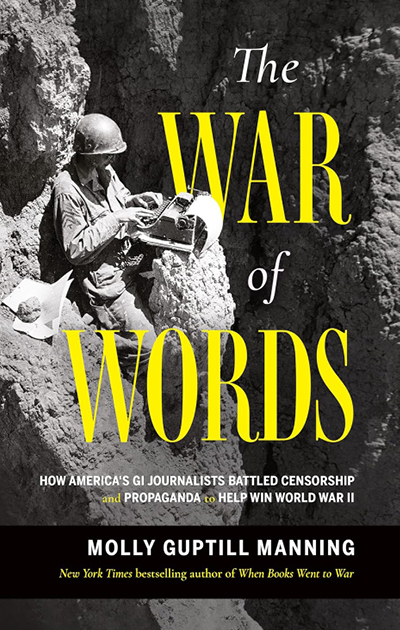
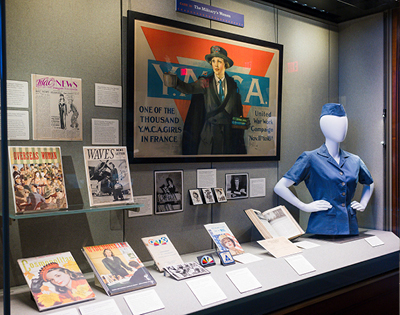
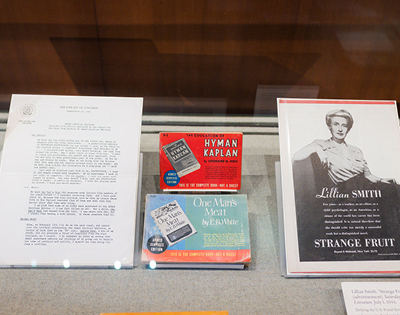
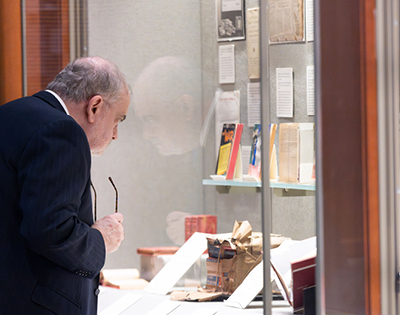
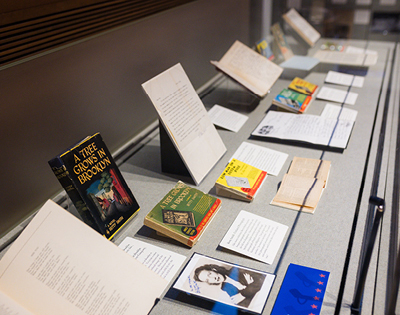
4. What’s a problem you wish you could solve with a snap of your fingers?
That’s an easy one: book bans. You can see the trail of damage that can be traced to a ban. In a democracy, people must have the freedom to read what they want; dictating what others can and cannot read is antithetical to liberty. People should have the freedom to make individual decisions about what they will read. And so at the snap of my fingers, I would eliminate all book bans.
5. What questions do you have that you want to be able to answer with your work?
When I start out with a project, I approach it with a lot of flexibility. As I research a topic, I am always prepared to be surprised. There’s always new information, especially because I go through archives, and you never know what you will find. I’ll have some idea about what kinds of questions I want to answer, but sometimes, those answers don’t exist. You’re confined to whatever has been recorded and preserved. I remain open-minded, knowing that sometimes the exact question I have can’t be answered because there’s no material on it, but a parallel question may have a bevy of information. And sometimes I end up finding a far more interesting research thread to pursue than what I had originally begun with.
6. How do you approach teaching law?
I try to make the material we cover in class as relevant, interesting, and engaging as possible. I worked in the federal courts for 13 years before coming to New York Law School as a professor, and I sincerely enjoyed the challenge of the work every day. While many of the courses I have taught can be daunting and challenging — such as Constitutional Law, Civil Procedure, and Federal Courts — I try to find unique ways to approach the material to make it accessible. I sincerely want every student to leave my courses at the end of the semester with a mastery of the subject matter we covered. And to do this, I bring a unique teaching style, create a positive classroom environment, and teach the material in useful and memorable way.
7. What are you excited about these days?
I have several speaking engagements coming up. My exhibit’s going to be touring in California in early 2025, and I am exploring opportunities to create exhibitions about book bans. I am also working on a new book and have plans for law review articles.
8. What’s the next year like for you?
Traveling, writing, researching, and teaching. I'm very happy to be teaching Civil Procedure again in the spring; it’s one of my favorite courses to teach.
9. Whose work excites you these days?
Because of my connection to the book bans, I'm watching a lot about what PEN America and the American Library Association are doing in terms of empowering and emboldening librarians, helping the public understand the significance of this issue, and being at the forefront of advocating against book bans.
When you look at civil rights law, many cases are the product of social activism. It starts not in court — it starts with the people or with activist groups. They make their voices heard, and help build pressure to change law.
10. What are you reading, watching, or listening to?
I have been reading the complete works of Antoine de Saint-Exupéry. People know him for The Little Prince, but he wrote several other books that generally explore the theme of how people across the world are bound together through their humanity. Though politics, war, religion, and other things might work to divide us, Saint-Exupéry makes the point that we are all people and at our foundation, we want the same things out of life. He urges that we focus on our shared humanity rather than our perceived differences.
